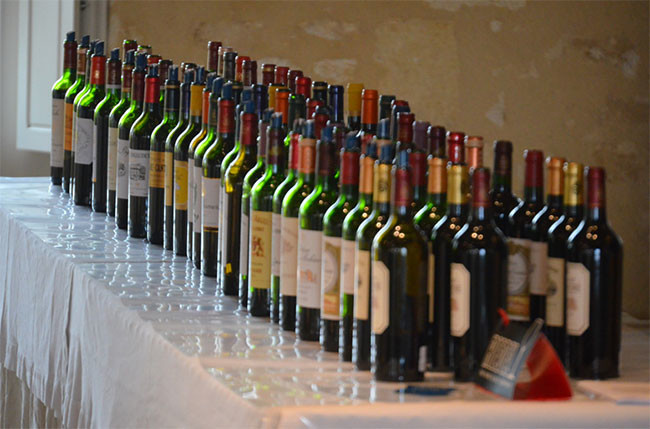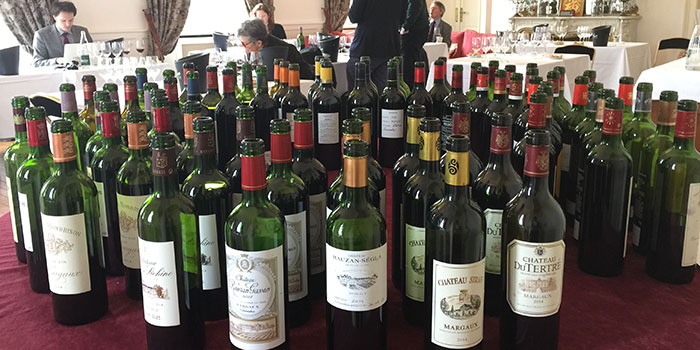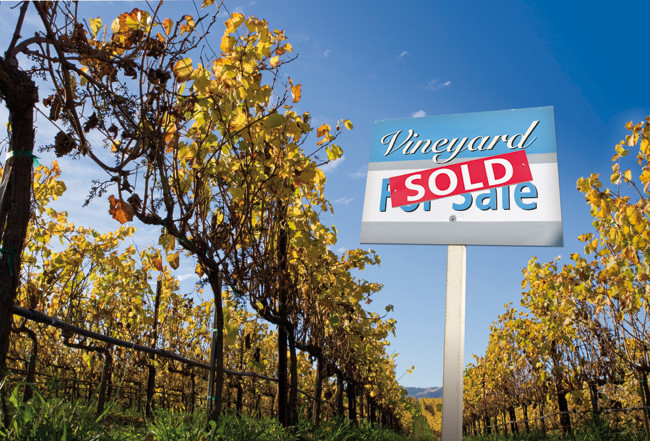1. Know your ‘counterparty risk’
Some buyers wrongly believe that ultimately their en primeur contract is underwritten by the wine producer, so a well-known producer is credit worthy and the risk of non-delivery is minimal. This is not the case – ‘you need to do some basic research about the supplier,’ said Tom Hudson, Bordeaux fine wine and en primeur merchant Director of Farr Vintners, ‘because you are paying upfront for something you are not going to receive for 2 years.’ When choosing your supplier, consider their reputation, financial strength, and whether guarantee, insurance and ‘cooling off’ period are offered.
2. Assess the price drivers
Desirability and availability: ‘The size of the production of a particular property is a big factor’, said Hudson, ‘It’s simply a matter of supply and demand, usually the rarer the wine, the more likely that its price will be higher later.’
Quality of the vintage and comparable vintages: ‘For example, we are hearing that 2015 is a strong vintage,’ Hudson explained, ‘so people are going to compare it to other vintages of similar quality, and see what their release prices were and how their prices have performed since.’
Professional opinions: ‘With the internet, you can find the opinion and scores from a range of international critics on any given wine very quickly,’ said Hudson. ‘Wine merchants who also attend the tastings can give guidance on how the quality of the wine relates to the price of the wine, which could be very helpful to consumers.’
Wider economy: Outlook about the wine region, the economy at large and relative performances of various asset classes are also factors that would affect the pricing and value proposition of en primeur. ‘The global climate is key to the whole thing,” said Hudson, “ultimately it drives supply and demand dynamics.’
3. Take a longer view
‘I personally think anyone buying en primeur Bordeaux needs to be looking at a minimum 10 years holding period. It is very risky as a short term investment,’ said Hudson. When you buy en primeur, you are buying a wine based on barrel samples, not a finished product. You are taking a chance on the eventual quality, aging potential and value of the wine. As the years roll on, the dual effect of increasing drinkability and diminishing availability is what could drive your investment to appreciate in value, in the long run.
‘Also, an advantage of buying en primeur is that you could choose the format [bottle size] of the wine,’ Hudson said. If you lay down the wine for the long haul, consider buying some larger bottles (such as magnums), as they tend to help the wine age better.
4. Know the all-in costs
On top of your wine budget, you are likely to have to factor in cost of storage, insurance, delivery, and potentially taxation specific to your jurisdiction (at the point of delivery, resale or consumption). En primeur prices are often quoted ‘in bond’ – meaning without VAT and excise duty. En primeur wines can be delivered to and transferred between government approved bonded warehouses without attracting VAT and duty, until you take them out of the bonded storage. In this way, en primeur can be tax efficient.
Investors can buy and sell their wine in bond, without ever paying VAT and duty. However this also means potentially long term storage costs.
5. Maximize provenance
Provenance refers to the authenticity, traceability and quality assurance in how a wine is stored and handled. En primeur could offer the perfect provenance for your wine as it originates directly from the producer so the authenticity is guaranteed. To maximize your wine’s provenance, keep your en primeur wines in professional storage at all times (until the point of consumption). This way you will have a complete history of your wine backed by impeccable and fully traceable storage and handling records. It is also advisable to minimise the amount of travelling for your wine.
Translated by Sylvia Wu / 吴嘉溦
All rights reserved by Future plc. No part of this publication may be reproduced, distributed or transmitted in any form or by any means without the prior written permission of Decanter.
Only Official Media Partners (see About us) of DecanterChina.com may republish part of the content from the site without prior permission under strict Terms & Conditions. Contact china@decanter.com to learn about how to become an Official Media Partner of DecanterChina.com.













Comments
Submit